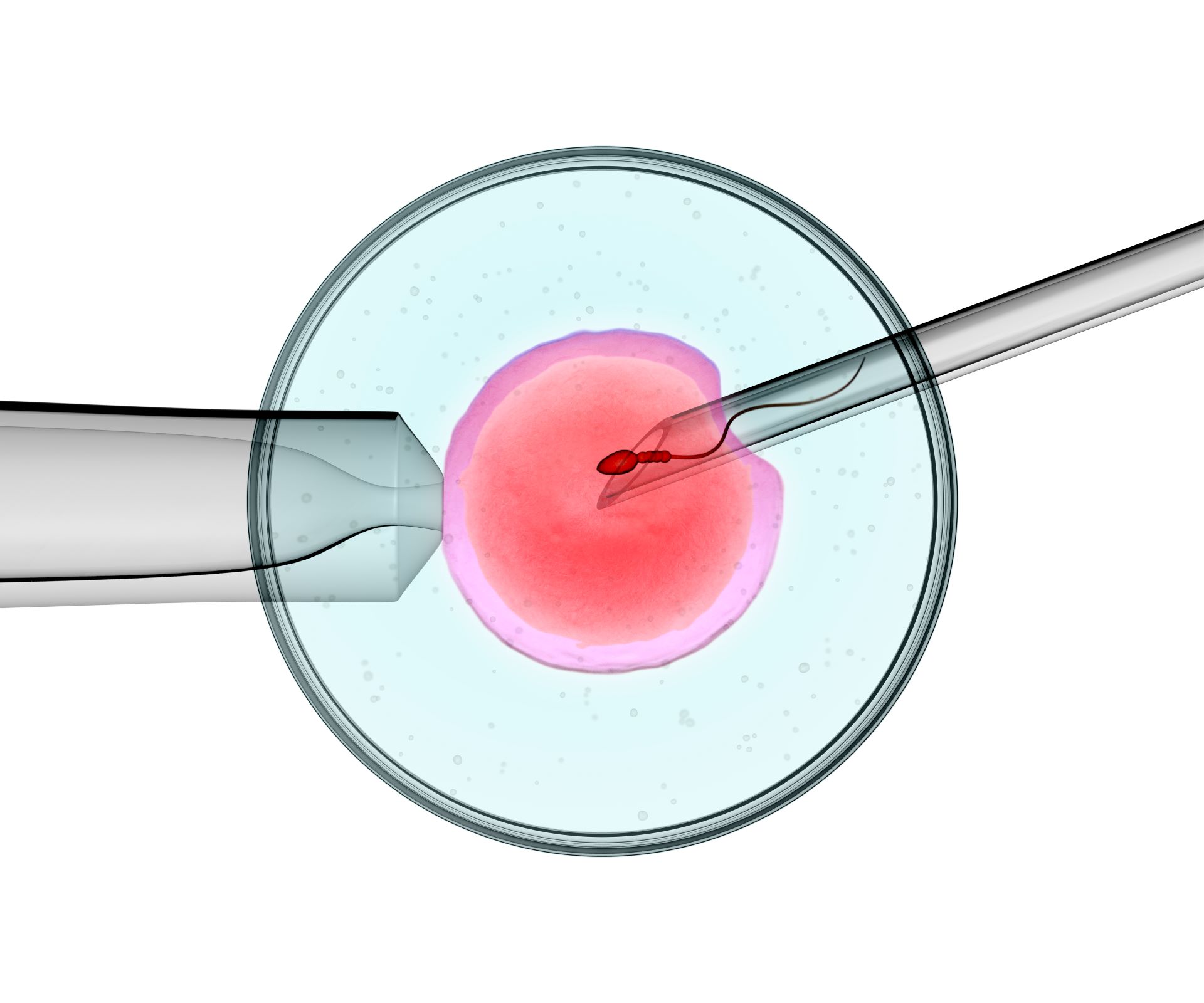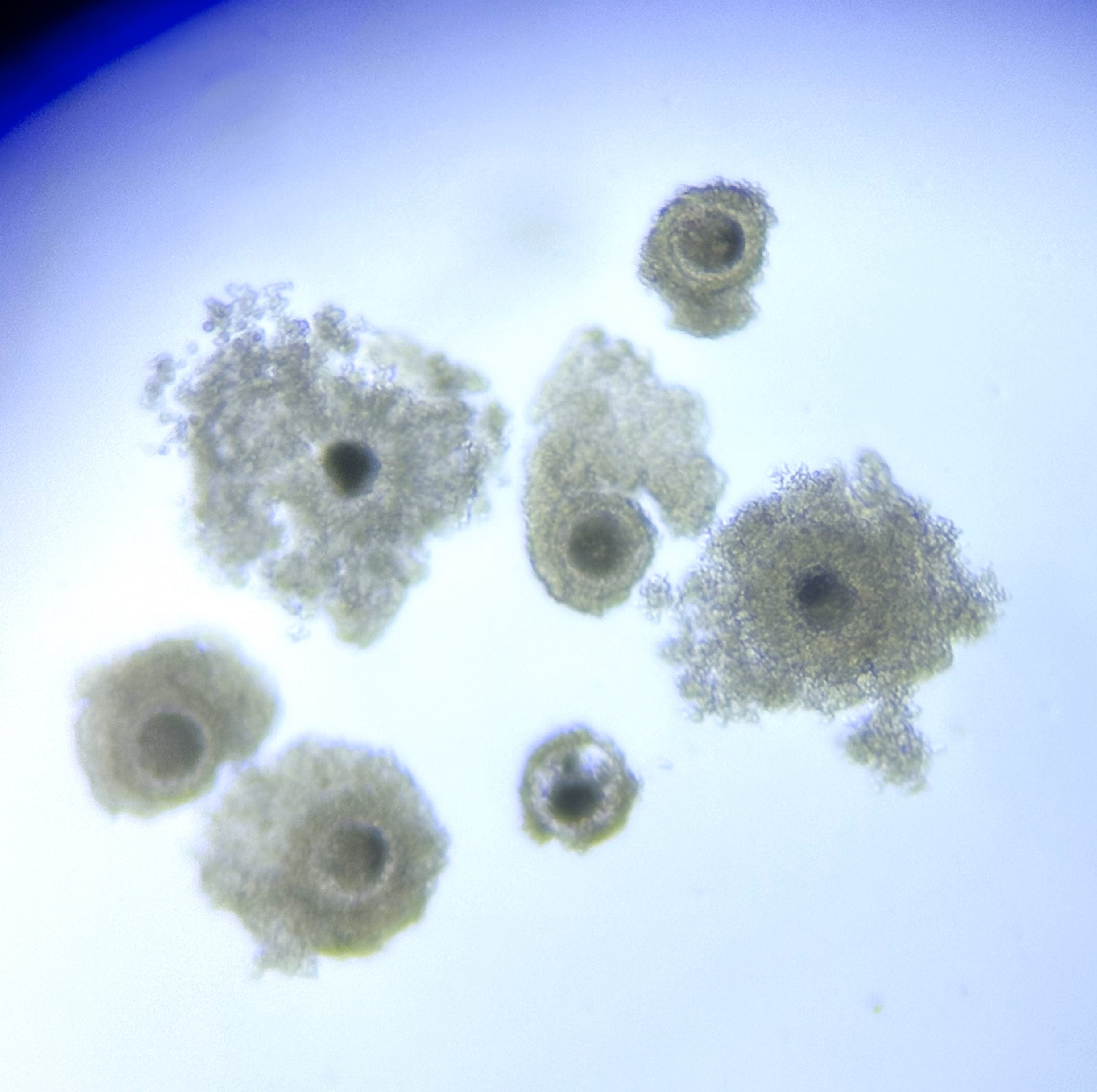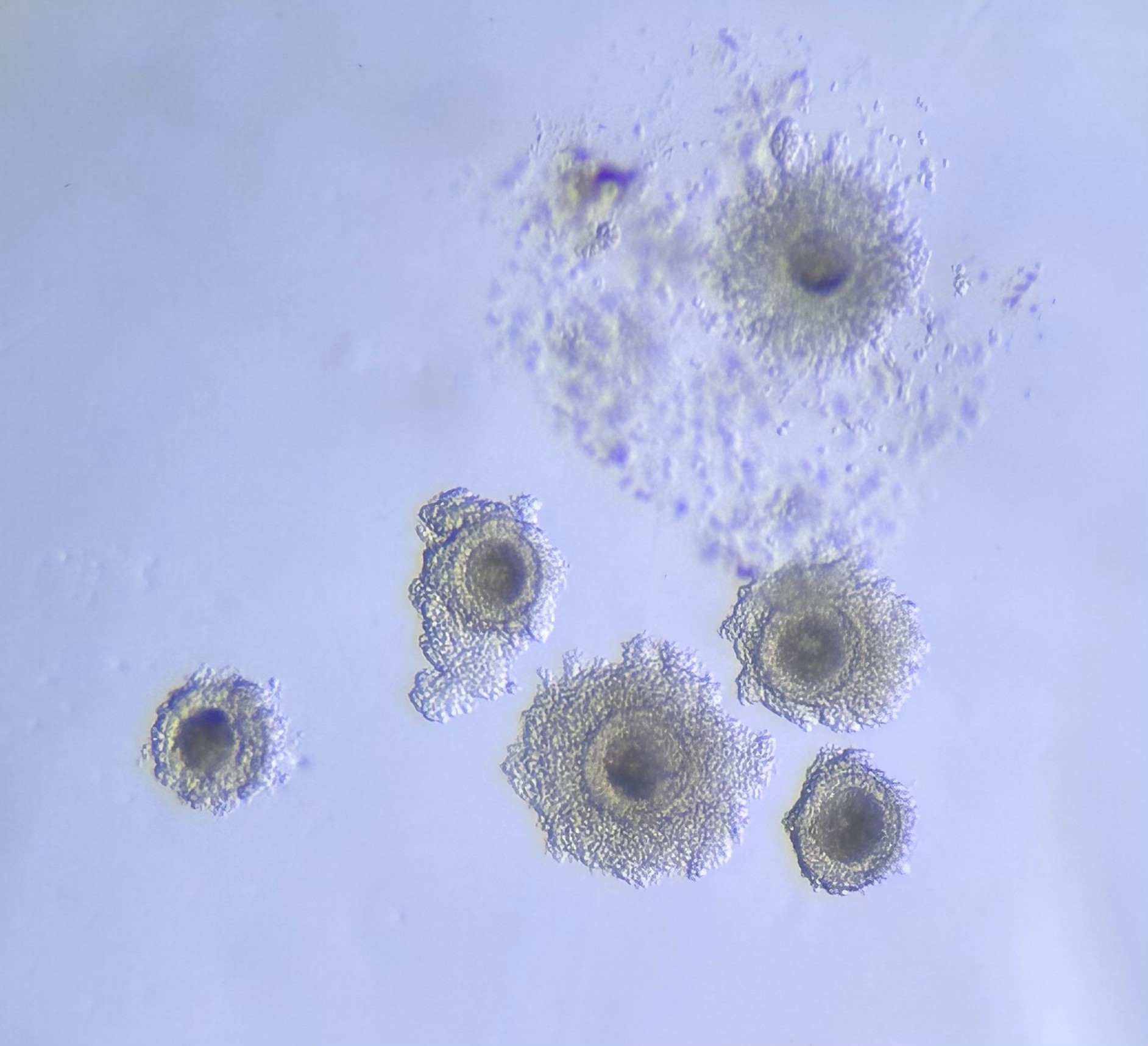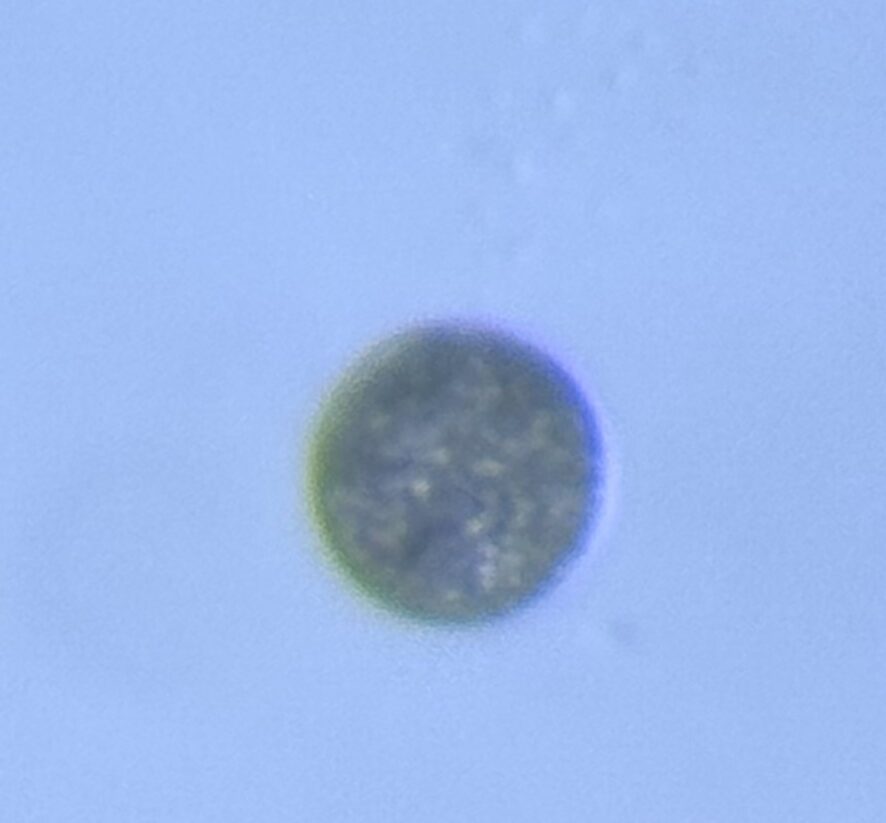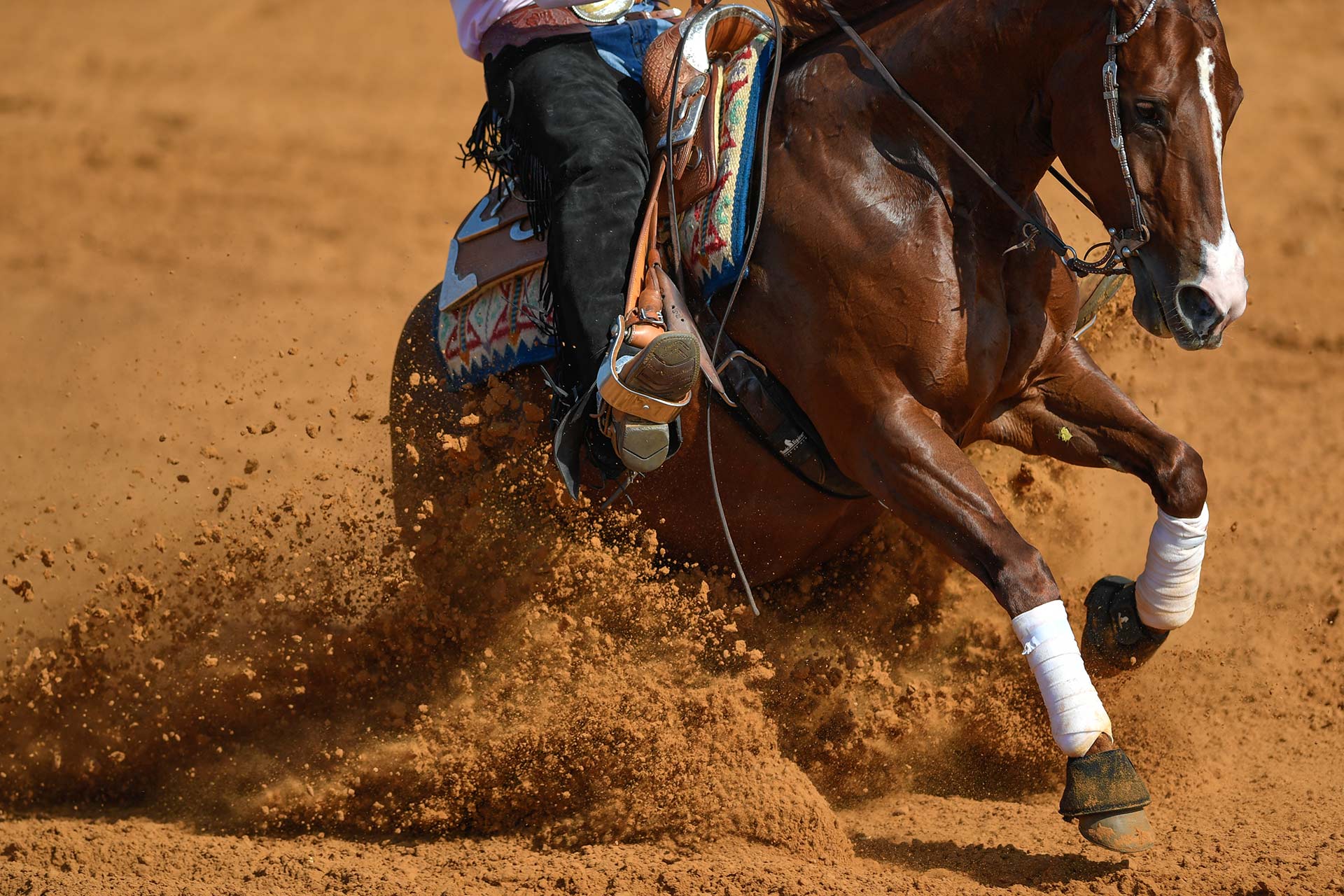Now Offering ICSI
We are thrilled to introduce our ICSI services. At Bandalero Ranch, we handle mare management and OPU procedures. Oocytes are then transported to Genetech to monitor oocyte maturation and inject a single sperm into the egg. Embryos are cultured and assessed in the laboratory. Embryos can then be shipped for immediate transfer into a Bandalero Ranch recipient mare or embryos can be frozen for cryopreservation storage.
What is Intracytoplasmic Sperm
Injection (ICSI)?
This innovative technology comprises several sequential steps, commencing with the retrieval of oocytes directly from the ovaries through a procedure known as Ovum Pick-Up (OPU). These oocytes undergo maturation and fertilization within a laboratory setting, leading to the cultivation of resulting embryos until they are ready for transfer to a mare or for cryopreservation. Notably, during fertilization, each oocyte is individually fertilized through the injection of a single sperm cell, a remarkable technique that characterizes the entire process. The entire process, from OPU to transfer or freezing, typically spans up to two weeks.




